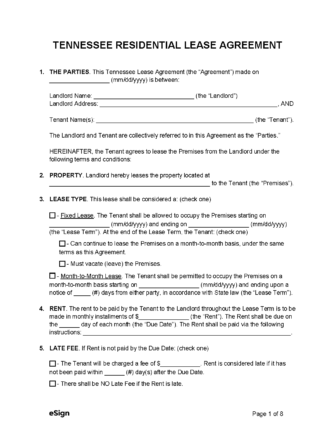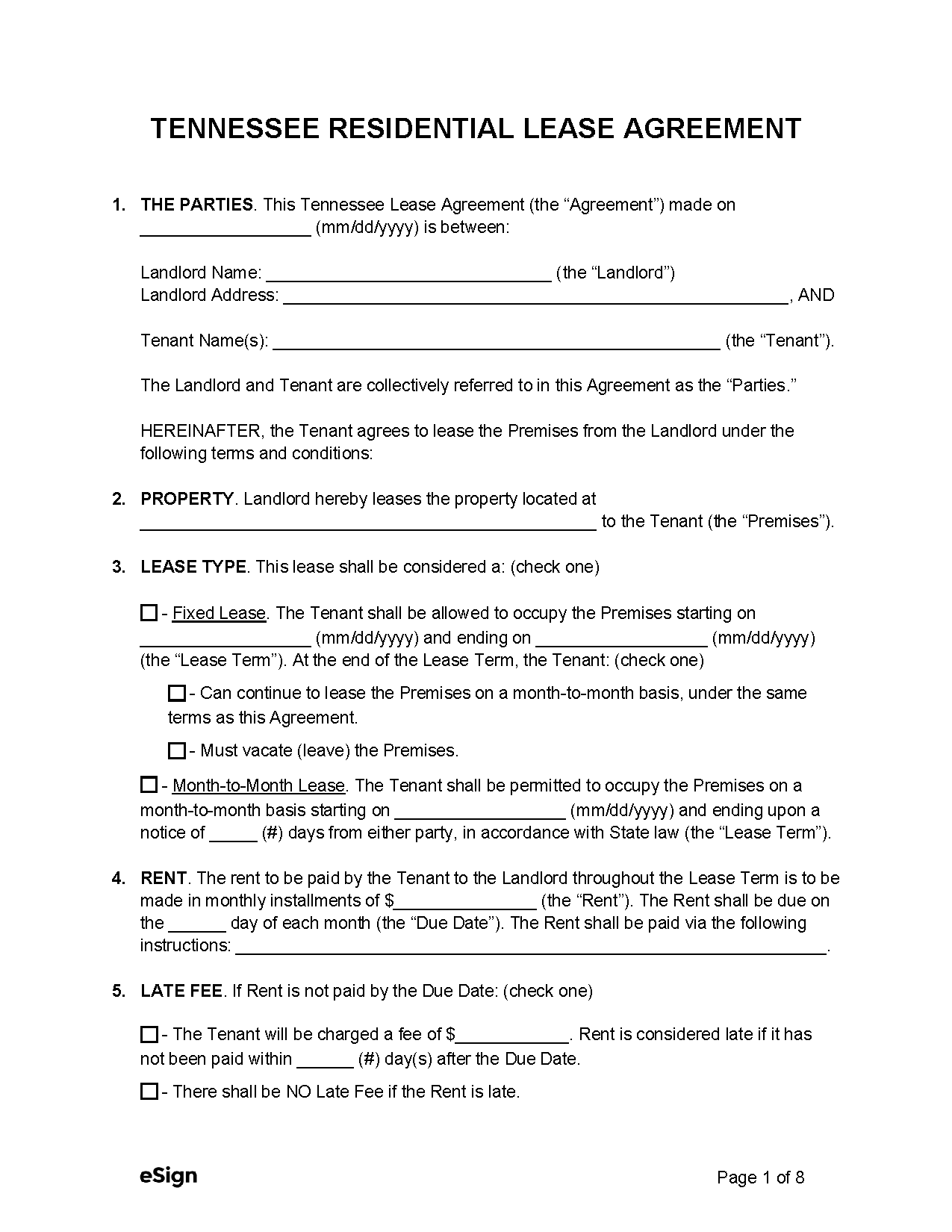Lease Agreements: By Type (6)
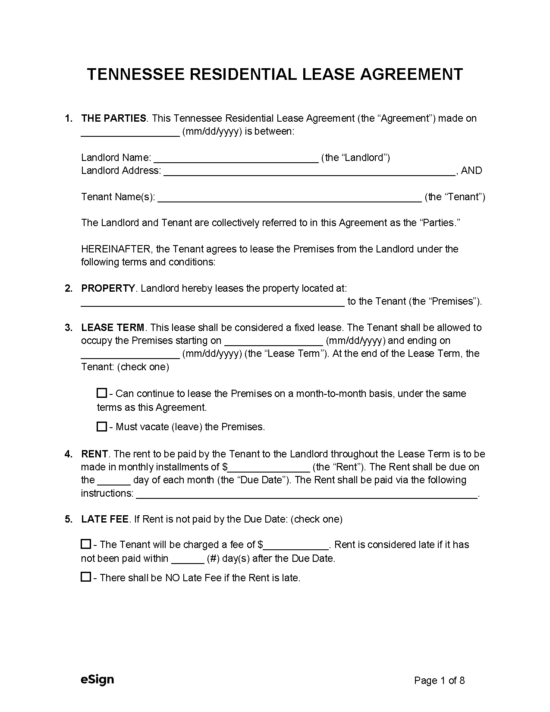 Standard (1-year) Lease Agreement – Defines the rental conditions for a one year residential tenancy. Standard (1-year) Lease Agreement – Defines the rental conditions for a one year residential tenancy.
Download: PDF, Word (.docx), OpenDocument |
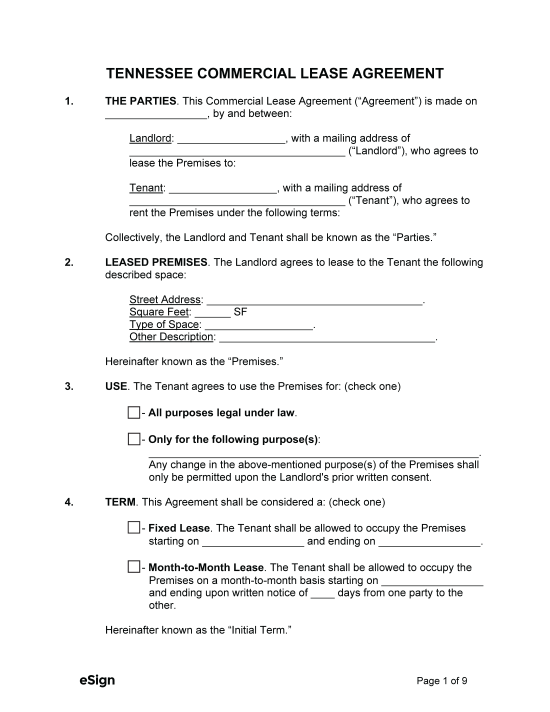 Commercial Lease Agreement – A rental contract between a tenant and a landlord leasing commercial real estate. Commercial Lease Agreement – A rental contract between a tenant and a landlord leasing commercial real estate.
Download: PDF, Word (.docx), OpenDocument |
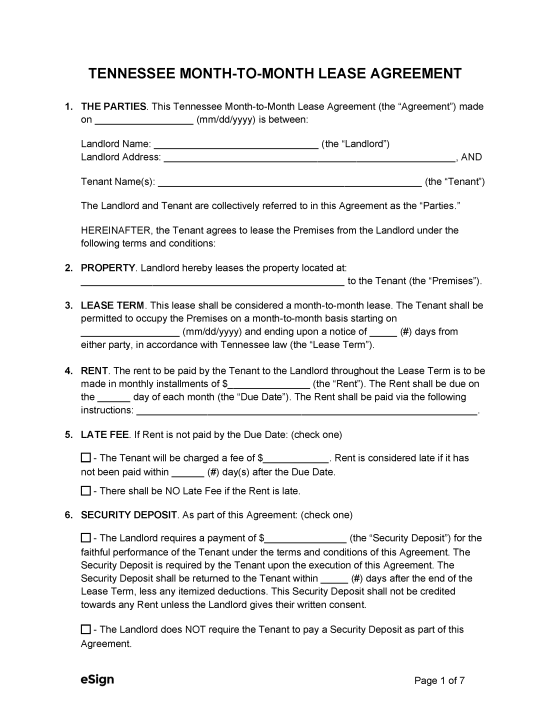 Month-to-Month Lease Agreement – A rental contract that continues on a month-to-month basis and may be terminated with 30days’ notice given by either party. Month-to-Month Lease Agreement – A rental contract that continues on a month-to-month basis and may be terminated with 30days’ notice given by either party.
Download: PDF, Word (.docx), OpenDocument |
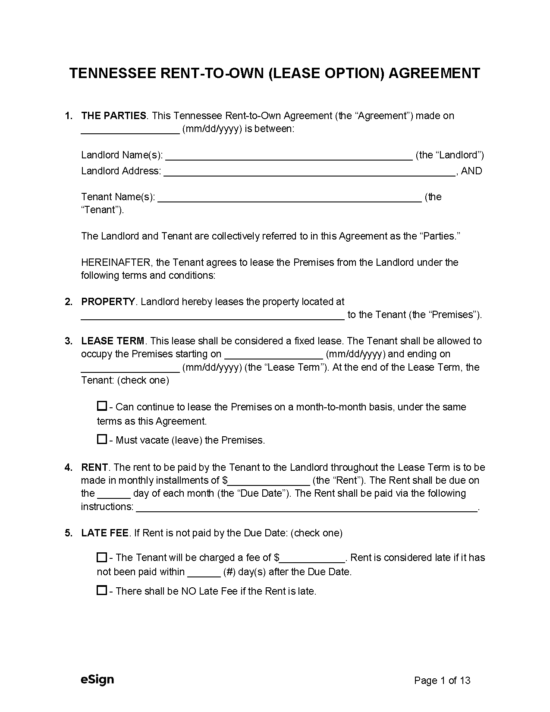 Rent-to-Own Agreement (Lease Option) – A lease agreement with additional terms that enable the tenant to buy the property under certain conditions. Rent-to-Own Agreement (Lease Option) – A lease agreement with additional terms that enable the tenant to buy the property under certain conditions.
Download: PDF, Word (.docx), OpenDocument |
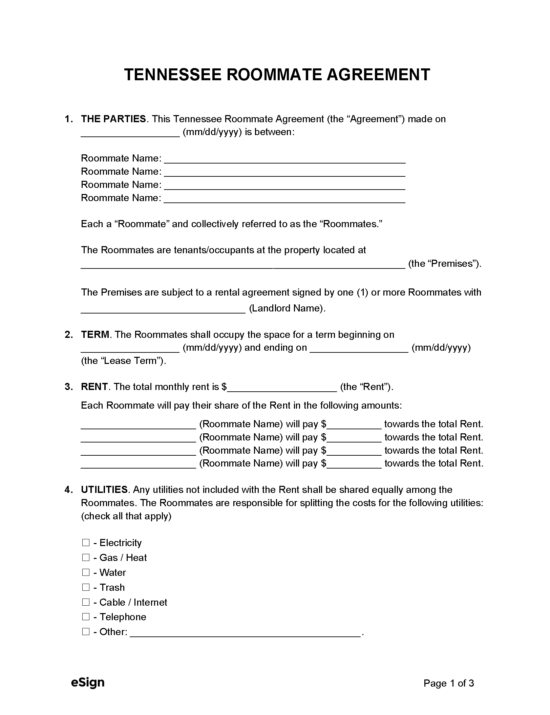 Roommate Agreement – Used by two or more individuals to create rules for occupying a shared living space. Roommate Agreement – Used by two or more individuals to create rules for occupying a shared living space.
Download: PDF, Word (.docx), OpenDocument |
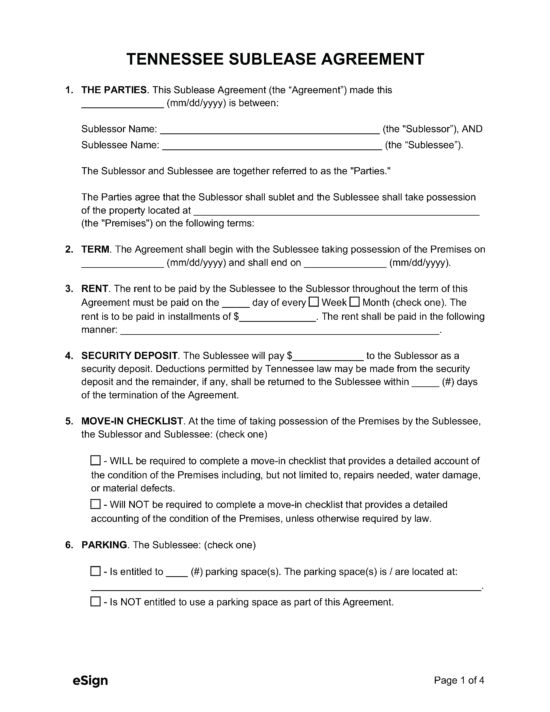 Sublease Agreement – Tenants may use this agreement to rent out all or a portion of their leased dwelling, typically with permission from the landlord. Sublease Agreement – Tenants may use this agreement to rent out all or a portion of their leased dwelling, typically with permission from the landlord.
Download: PDF, Word (.docx), OpenDocument |
Required Disclosures (3)
- Landlord Information – On or before the start of the tenancy, tenants must be given the names and addresses of the person who manages the property and the owner or their agent.[1]
- Lead-Based Paint Disclosure (PDF) – Must be provided to tenants to disclose the presence of toxic paint on the premises if the rental unit was built prior to 1978.[2]
- Showings – If the landlord wishes to reserve the right to enter a tenant’s rental property to show it to new tenants, they must disclose this in the lease. This is only applicable within the final 30 days of a tenancy, and notice of 24 hours must be given prior to entry.[3]
Security Deposits
Maximum Amount ($) – Tennessee law does not establish a maximum limit for security deposits.
Collecting Interest – The collection and distribution of interest on security deposits is not covered by state law.
Returning to Tenant – If the tenant is owed all or some of their security deposit after moving out, the landlord must notify the tenant and, if the tenant does not reply within 60 days, they forfeit the balance of the deposit.[4]
Itemized List Required? – Yes, a list of chargeable damages must be created if the tenant requests a mutual inspection at the end of their term.[5]
Separate Bank Account? – Yes, security deposits for residential tenancies must be kept in a separate account.[6]
Landlord’s Entry
General Access – There is no minimum notice period for landlord entry mentioned in state statutes, but the landlord should obtain the tenant’s consent by providing notice and must not abuse their access privileges.[7]
- Exception: Landlords must give 24-hours’ notice before accessing the rental unit when showing it to prospective tenants within 30 days of the end of the current lease term.[8]
Immediate Access – The landlord can access the property without consent during emergencies or to inspect for damages if utilities were unexpectedly shut off.[9]
Rent Payments
Grace Period – There is a five-day grace period before a landlord can charge a fee for late rent payment (including the day rent was due).[10]
- Exception – If the fifth grace period day lands on a legal holiday or a Sunday, the tenant will not be charged a late fee until the next business day (if they do not pay).
Maximum Late Fee ($) – Maximum fee for late rent payment is 10% of the total rent amount.
Bad Check (NSF) Fee – Landlords may charge $30 to tenants if a rent check bounces due to insufficient funds.[11]
Withholding Rent – It is not mentioned in state statutes whether tenants have the right to withhold rent until landlord’s make necessary repairs.
Breaking a Lease
Non-Payment of Rent – When a tenant hasn’t paid rent, the landlord can send them a 14-day notice stating that they must pay within that timeframe or the lease agreement will terminate.[12]
- Exception: If a tenant fails to pay rent a second time in six months of the previous instance, a 7-day notice to quit can be sent stating that the lease will be terminated at the end of the notice period.[13]
Non-Compliance – Tenants have 14 days after being served a notice for non-compliance to remedy their violation or the lease will terminate.
- Exception: A second violation within a 6-month period means the landlord can terminate the lease at the end of a 7-day notice period.
Tenant Maintenance – Tenants are required to comply with the following rules[14]:
- Adhere to all building and housing codes
- Keep the premises clean and safe
- Dispose of garbage and other waste
- Refrain from damaging the property
- Act peacefully and avoid disturbing other tenants
Lockouts – The landlord cannot prevent a tenant from accessing their rental property.[15]
Leaving Before the End Date – If a tenant vacates the property before the lease terminates, the landlord can recover possession of the dwelling after 30 days have passed without receiving rent payment.[16]
- Duty to Re-rent – The landlord must try to re-rent the property if the tenant abandons it.[17]
Lease Termination
Month-to-Month – A 30-day notice is required to terminate a month-to-month tenancy by either the landlord or the tenant.[18]
Unclaimed Property – Any property left by a tenant must be held for 30 days by the landlord, after which time it can be thrown away or sold if not reclaimed.[19]
Sources
- § 66-28-302
- EPA/HUD Fact Sheet
- § 66-28-403(e)(5)
- § 66-28-301(f)
- § 66-28-301(b)(1)(B)
- § 66-28-301(a)
- § 66-28-403
- § 66-28-403(e)(5)
- § 66-28-403(b) and (c)
- § 66-28-201(d)
- § 47-29-102
- § 66-28-505(a)(2)
- § 66-28-505(a)(2)(B)
- § 66-28-401
- § 66-28-504
- § 66-28-405(a)
- § 66-28-507(c)
- § 66-28-512(b)
- § 66-28-405(c)
